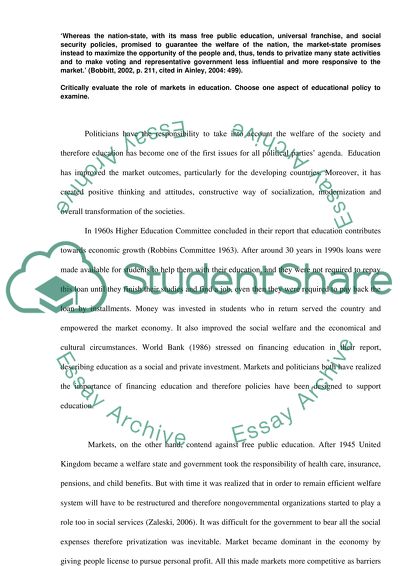Cite this document
(“Politics and Policy in Education Essay Example | Topics and Well Written Essays - 4750 words”, n.d.)
Retrieved from https://studentshare.org/education/1395848-politics-and-policy-in-education
Retrieved from https://studentshare.org/education/1395848-politics-and-policy-in-education
(Politics and Policy in Education Essay Example | Topics and Well Written Essays - 4750 Words)
https://studentshare.org/education/1395848-politics-and-policy-in-education.
https://studentshare.org/education/1395848-politics-and-policy-in-education.
“Politics and Policy in Education Essay Example | Topics and Well Written Essays - 4750 Words”, n.d. https://studentshare.org/education/1395848-politics-and-policy-in-education.


